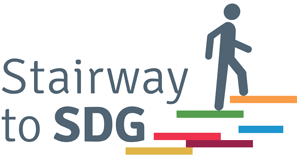Methodology
Education should prepare students for a rapidly changing world by enabling them to understand the complex world in which they live and to become change agents in their personal and future professional life. The Practical Guide for Teachers was designed to support VET Professionals (our Sustainability Makers) to connect the practical approach of the project with an educational approach for Sustainable Development.
Key Competences for Sustainability ▼
To become sustainability change agents, students need to have sustainability key competencies: systems thinking competency, anticipatory competency, normative competency, strategic competency, collaboration competency, critical thinking competency, self-awareness competency, integrated problem-solving competency. These cross-cutting competencies are primordial for all learners of all ages worldwide and are transversal, multifunctional and context-independent. They require knowledge, skills, values and attitudes that empower students to contribute to sustainable development and are relevant to all SDGs. Sustainability competencies enable students to relate the different SDGs to each other and to see ‘the big picture’ of the 2030 Agenda for Sustainable Development.
Systems thinking competency: the abilities to recognize and understand relationships, to analyze complex systems, to think of how systems are embedded within different domains and different scales, and to deal with uncertainty.
Anticipatory competency: the abilities to understand and evaluate multiple futures – possible, probable and desirable; to create one’s own visions for the future; to apply the precautionary principle; to assess the consequences of actions; and to deal with risks and changes.
Normative competency: the abilities to understand and reflect on the norms and values that underlie one’s actions; and to negotiate sustainability values, principles, goals and targets, in a context of conflict of interests and trade-offs, uncertain knowledge and contradictions.
Strategic competency: the abilities to collectively develop and implement innovative actions that further sustainability at the local level and further afield.
Collaboration competency: the abilities to learn from others; to understand and respect the needs, perspectives and actions of others (empathy); to understand, relate to and be sensitive to others (empathic leadership); to deal with conflicts in a group, and to facilitate collaborative and participatory problem solving.
Critical thinking competency: the ability to question norms, practices and opinions; to reflect on one's own values, perceptions and actions; and to take a position in the sustainability discourse.
Self-awareness competency: the ability to reflect on one’s own role in the community and (global) society; to continually evaluate and further motivate one’s actions; and to deal with one’s feelings and desires.
Integrated problem-solving competency: the overarching ability to apply different problem-solving frameworks to complex sustainability problems and develop viable, inclusive and equitable solution options that promote sustainable development, integrating the above-mentioned competences.
Source: Education for Sustainable Development Goals, Learning Objectives, 2017, UNESCO
Education for Sustainable Development ▼
The approach of Education for Sustainable Development (ESD) empowers students to take informed decisions and responsible actions in order to contribute to a more sustainable world. A world in which economic growth is limited by planetary and social boundaries. Sustainability competencies cannot be taught, but have to be developed by the learners themselves. They are acquired during action, on the basis of experience and reflection. This requires an approach which is learner centred and self-regulative, praxis and action-oriented and based on learning through discovery and research, on collaboration and interaction (also with and from outsiders), and on real-world issues and the needs of society. This can only be achieved if formal, non-formal and informal learning are linked. UNESCO developed a set of learning objectives to contribute to the 2030 SDG Agenda through education, based on the sustainability competencies and the SDGs.
The Learning Objectives for each SDG are contained in the SDG information pages.
The complete UNESCO publication can also be downloaded: Education for Sustainable Development Goals, Learning Objectives, 2017, UNESCO






